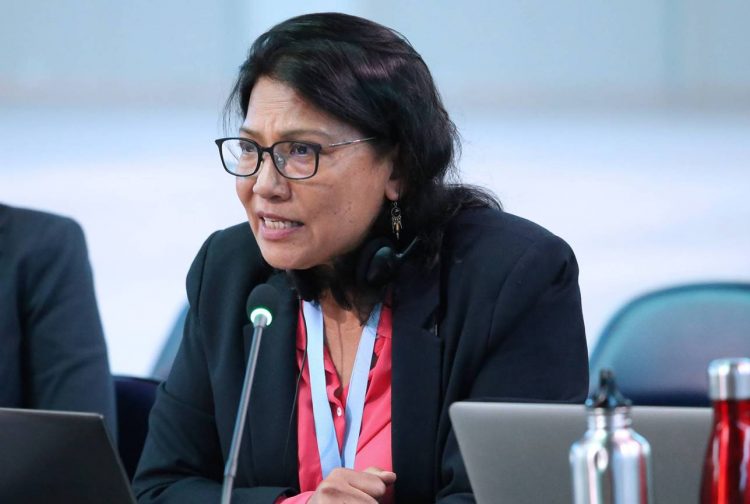Pesticide Action Network (PAN) International Opening statement by Sarojeni V. Rengam at the Strategic Approach to International Chemicals Management (SAICM) Open Ended Working Group 3 in Montevideo, Uruguay last April 2, 2019:
Thank you, Madam President. I speak on behalf of more than 600 civil society organisations that Pesticide Action Network represents.
We welcome this opportunity to make concrete progress on developing a SAICM 2.0 and enabling framework that may finally be able to deliver effective action on the issue of concern that is of central importance to us – that of Highly Hazardous Pesticides.
We remain extremely concerned about the failure of SAICM to address HHPs, and the causes of this failure, which must be addressed in SAICM going forward.
We remind you that the original SAICM texts expressed concern about the high usage of pesticides and promoted action on highly hazardous pesticides. In order to implement the SAICM texts in 2006, the FAO Council proposed a global phase out of HHPs.
At ICCM3 in 2012, 65 countries and organisations tabled a resolution calling for this global phase out of HHPs, but it was blocked by the pesticide industry and some western countries.
At ICCM4, 31 countries and organisations called for the establishment of a Global Alliance on HHPs, but this was also blocked, and the result was only a resolution expressing concern about HHPs and recommending their replacement with agroecological practices. There has been no programme on HHPs, not even a framework for stakeholders to work together to achieve their sound management.
So still today farmers are getting poisoned by HHP, and children are dying from inadvertent use of HHPs in food preparation because they are stored in the home, even in the kitchen. PANAP recently carried out monitoring program in 7 Asian countries and found that 70% of farmers are suffering acute pesticide poisoning. This is an outrageous situation: it was only 2-3% when WHO published its study in 1990. The Global Chemicals outlook sounds the warning about increasing production of pesticides so unless countries and organisations are prepared to take serious action on HHPs the poisoning will only increase. In addition, biodiversity is crashing due to pesticides use.
We ask all countries and stakeholders to bear this serious situation in mind during the discussions over the next few days – to ask themselves if they find it acceptable that 70% of farmers and agricultural workers producing our food are getting poisoned, and if not how can SAICM 2.0 be improved so that action can be taken on HHPs.
We look forward to discussions on an enabling framework and on how an issue of concern that SAICM has been unable resolve can be put forward for a legally binding protocol or treaty. Thank you.








Discussion about this post